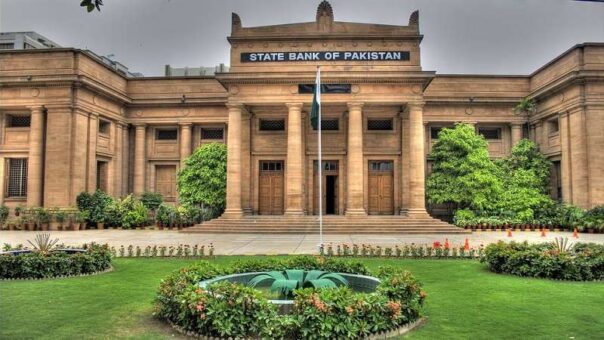Karachi, May 20, 2024 – Bank deposits in Pakistan have soared to an unprecedented high, reaching Rs 28.42 trillion by the end of April 2024, according to official data released on Monday.
This marks a significant increase from Rs 28.32 trillion recorded in March 2024, showcasing a robust growth in the banking sector.
The State Bank of Pakistan (SBP) reported that the bank deposits for April 2024 have witnessed a substantial year-on-year growth of 21.3 percent, rising from Rs 23.43 trillion in April 2023. This impressive surge underscores the increasing confidence of depositors in the banking system amid a favorable economic environment.
Financial market experts attribute this remarkable growth in bank deposits to the high-interest rates maintained by the central bank. The SBP has kept the benchmark key policy rate steady at 22 percent over the past several monetary policy reviews. This high-interest rate environment has been pivotal in attracting depositors seeking substantial returns on their savings.
“At a 22 percent interest rate, depositors find the returns on their investments quite attractive,” said one market analyst. “This scenario has encouraged people to deposit more money in banks, rather than exploring other investment avenues.”
Additionally, the elevated interest rates have had a dual impact on the economy. While they have drawn depositors towards the banking system, they have also discouraged the private sector from borrowing. The high cost of borrowing has led businesses to seek alternative financing options or to defer expansion plans, which in turn has funneled more capital into bank deposits.
The increase in bank deposits is seen as a positive indicator of financial stability and liquidity within the banking sector. It also reflects a broader trend of economic behavior where higher returns on deposits outweigh the incentives for immediate consumption or private sector investment in a high-interest rate environment.
However, some experts caution that the prolonged high-interest rates could have mixed effects on economic growth. While they help in controlling inflation and stabilizing the currency, they could also slow down economic activities by making loans more expensive for businesses and consumers.
The SBP’s policy decisions in the coming months will be closely watched, as the central bank balances the need to maintain economic stability with the goal of fostering growth. For now, the record high bank deposits indicate a strong preference among Pakistanis for secure and profitable banking options.
As Pakistan navigates its economic challenges, the trend of rising bank deposits suggests a stable financial sector, providing a solid foundation for future economic planning and policy adjustments.
